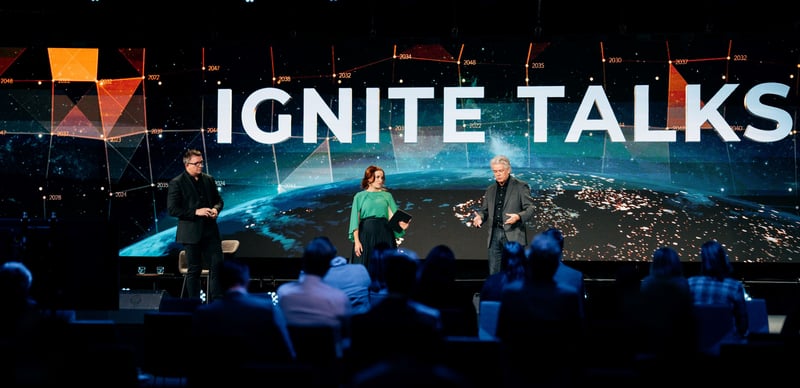What are some real, tangible ways that we can create a better, greener future?
Paula Doyle, Cognite's senior vice president of Sales & Marketing, this fall sat down with the hosts of The David McWilliams Podcast to discuss data-driven sustainability, the transition to renewables, shifting attitudes within industry, and more.
Read an excerpt below, or listen to the full interview (which starts at 22:46) here:
Q: Is the answer to sustainability tech?
Yes, it is. 100%. As has always been the case throughout time, technology and innovation is what’s going to drive us forward.
From Cognite’s perspective, because we are a very data-centered company, we see that sustainability is a data problem. How on earth can you make sustainable choices if you don’t see what’s going on? How do you reduce your energy usage? How do you optimize your emissions if you don’t have access to your data, and you’re not able to apply machine learning and artificial intelligence to that data in a way that you can then trust it to make operational decisions?
Right now people struggle with access to the data. If you can’t measure it, how do you improve it?
This is where the industry is going. In the past you could ride a wave with visionary statements from industry around ‘Yes, we’re going to reduce our emissions,’ ‘Yes, we’re on our path,’ but really, we’re very rapidly moving to the point where it needs to be proven. That means that we need to have the data. We need to be able to measure change.
That’s how we can have a serious, scaled-up impact on greenhouse gas emissions.
Read more: How Cognite Data Fusion delivers data and operational insights for impactful change toward the energy transition
Q: Can you give us some examples of how you use data to optimize efficiency for sustainability?
We’re using data to reduce energy consumption. We’re using data to optimize turbines, which are CO2 emitters. We’re using data to reduce the raw materials required in processes. And we’re using data to optimize maintenance, which maybe doesn’t sound directly linked to sustainability, but it’s all about reducing spare parts.
The truth is that it’s so important for the oil and gas industry to produce as efficiently and sustainably as possible, and I’m in no doubt that it’s only those who do that who will survive.
Read more: How Cognite BestDay helps oil and gas companies raise their maximum production capacity by providing real-time organizational visibility on all important aspects of production

Q: Have you seen this kind of shift in mentality and approach within industry?
Absolutely. We commissioned a study with Axios and Harris Poll on this. We surveyed a lot of industry and energy leaders around their attitudes to sustainability. 93% of them said that tech is the immediate part of the solution. What the report says is what I experience as well, talking to leaders of industry around the world.
We had our industrial conference [in September] (image above). The common thread that emerged that was not planned or scheduled was collaboration. I think every single leader who sat on that stage talked about the importance of collaboration.
This is a huge shift. We see it in the dialogs we have as well. I've never seen collaboration talked about at this level.
This urgency to move from talk to action that shines through in that report, and also their acknowledgement of what it’s going to take to get there as well. They do know what’s needed in terms of data, in terms of tech. They do know they need to be action-oriented.Everyone’s seeing the writing on the wall for actual sustainability metrics.